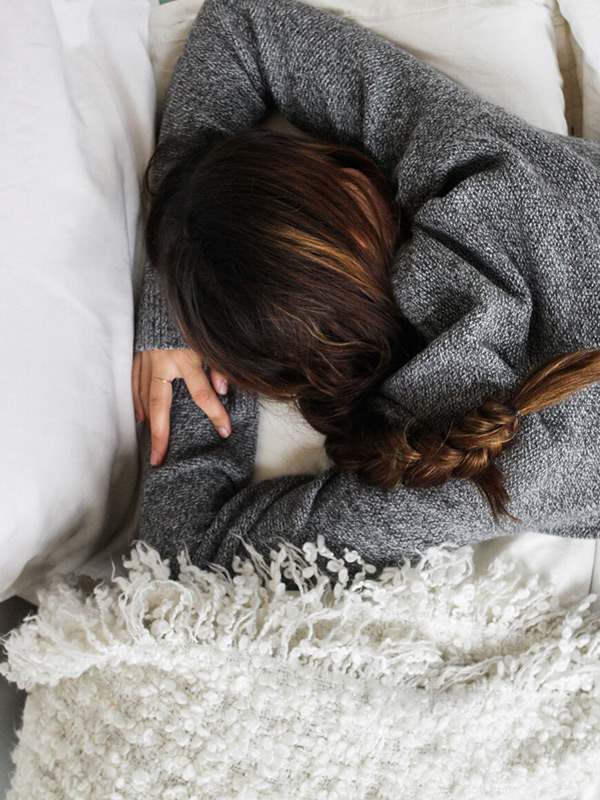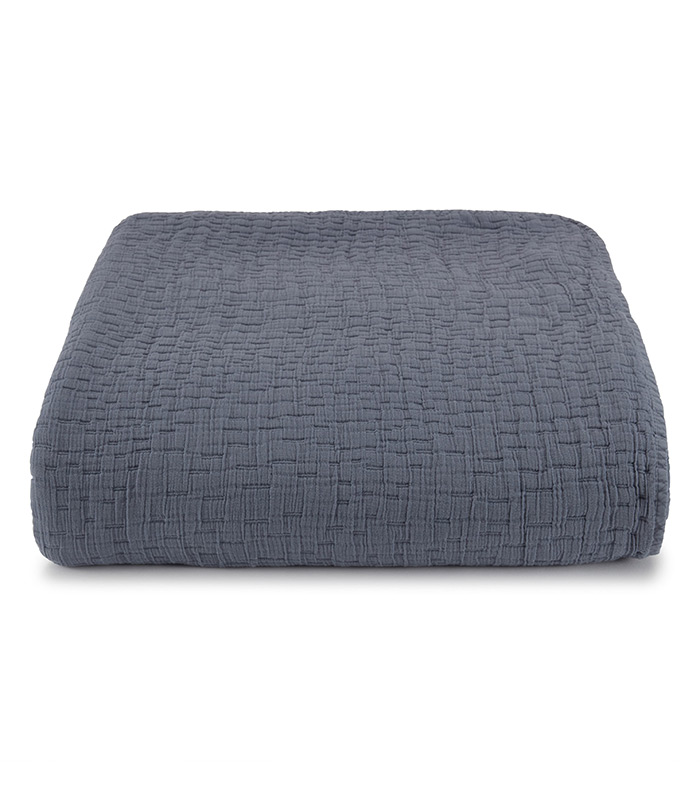Is It Bad to Sleep on Your Stomach? We Asked a Doctor


If you're here reading this, I'm assuming we have at least one thing in common: a penchant for sleeping belly-down, face buried in the pillows. Try as I might, I just can't fall asleep if I'm not flopped on my stomach with my limbs akimbo. But there's so much internet lore about sleeping on your stomach being the worst position literally ever (it hurts your back; your neck will be forever sore!) that I began to worry I was sabotaging my health with my sleep position.
Again, since you're reading this, I'm assuming that you've come to a similar realization and would also like to know once and for all: Is it bad to sleep on your stomach? I consulted the experts to help me separate fact from fiction. Here's what they said.
is it bad to sleep on your stomach?
"Contrary to popular belief, it's not 'bad' to sleep on your stomach," wellness expert Erin Berman of Nectar Sleep explains. "However, it might not be the best sleep position for you." (More on that in a moment.)
She says that for some people, it's actually the most natural sleep position. (*Raises hand.*) However, the caveat is that it can put a lot of pressure on your shoulders, back, and neck, she explains. "Also, if you are prone to indigestion or are pregnant, sleeping on your stomach is not recommended. It's best to know your own body."
So is there a sleep position that's best?
"There is no 'best position,'" Sujay Kansagra, MD, Mattress Firm's sleep health expert, says. "We all have different needs and pains while we sleep, so it is best to find whatever position makes you the most comfortable."
Also, the position you doze off in isn't the one you'll stay in all night long. "It's almost universal that people will turn throughout the night and change their position. In fact, during our light stages of sleep, we become restless and shift positions. Believe it or not, we are actually protecting ourselves, ensuring that circulation is not interrupted to any particular body part for the entire sleep period," Kansagra explains. The more you know…
How do you figure out the right sleep position for you?
While everyone is different, there are some general rules of thumb for trying to hack your sleep position. "Sleeping on your right side can increase heartburn, although sleeping on your side with a pillow between your legs can improve back pain," says Berman. "Sleeping on your back can be great for someone who gets neck pain twisted on their side, but be bad for someone who snores and has sleep apnea."
"Back sleepers should have a mattress and pillows that are supportive enough for their sleeping position. A firmer mattress can help keep your back aligned and memory foam pillows that conform to the shape of your neck and head can also provide necessary support," Kansagra adds.
Below, a few of our favorite snooze-ready products:

A calming potion that contains a blend of sour cherry, turmeric, probiotics, and passionflower to help you have a more restful sleep.
Next up: The One-Minute Trick That Makes Getting Up in the Morning Easier
This article is provided for informational purposes only and is not intended to be used in the place of advice of your physician or other medical professionals. You should always consult with your doctor or healthcare provider first with any health-related questions.









